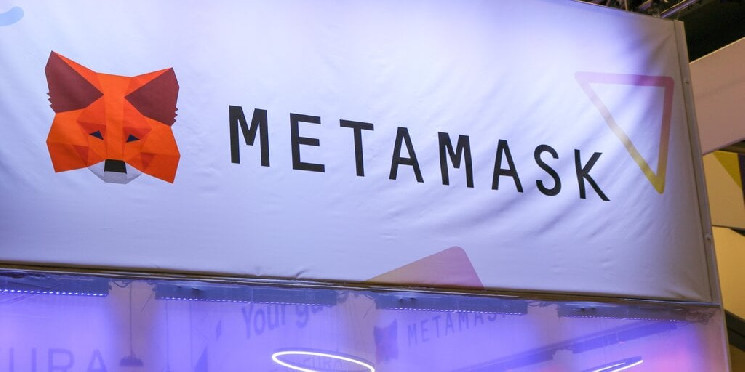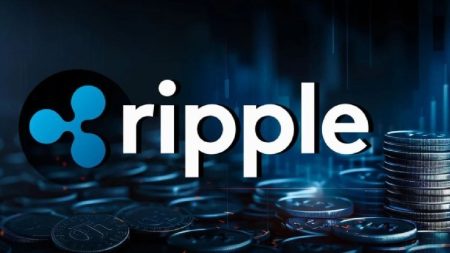MetaMask, the prominent Ethereum wallet known for its role in the NFT boom, is embarking on a significant expansion beyond its Ethereum roots, starting with Bitcoin. This strategic shift acknowledges the evolving cryptocurrency landscape, where decentralized finance (DeFi) is no longer confined to Ethereum and users are increasingly exploring alternative blockchains like Solana and Bitcoin. MetaMask’s product lead for Multichain, Christian Montoya, confirmed this direction, emphasizing the company’s long-standing exploration of cross-chain compatibility. While MetaMask has been synonymous with Ethereum, the changing crypto dynamics necessitate adaptation to remain competitive.
This expansion into the Bitcoin ecosystem is evident in Consensys’s recent job posting for a product manager focused on MetaMask’s Bitcoin experience. The posting highlights the importance of experience with Ordinals and Runes, Bitcoin’s counterparts to NFTs and meme coins, respectively. While the exact roadmap remains flexible, the initial focus will be on fundamental Bitcoin functionality. Montoya emphasized the vastness of the Bitcoin ecosystem, making it crucial to prioritize key features for integration. This strategic approach aims to provide users with a seamless Bitcoin experience within the familiar MetaMask interface.
MetaMask’s rise to prominence coincided with the Ethereum NFT frenzy of 2021 and 2022. However, the crypto landscape has shifted. Meme coins, predominantly residing on Solana due to its lower costs and faster transaction speeds, gained significant traction, while high-value NFTs waned. Concurrently, DeFi activity on Bitcoin has also seen growth. These trends have contributed to Ethereum’s relative stagnation, with its price lagging behind its 2021 peak, while both Bitcoin and Solana have recently achieved new all-time highs. This shifting landscape underscores the need for MetaMask to diversify its support beyond Ethereum.
Ethereum’s recent struggles have been attributed to various factors, including investor frustration over sluggish price action, concerns about layer-2 network value drainage, and a perceived lack of engagement from the Ethereum Foundation. While the Foundation has recently pledged changes and Ethereum creator Vitalik Buterin has adopted a more proactive approach, the perceived vibrancy of competing communities, like Solana’s, has highlighted the need for Ethereum and its associated tools, like MetaMask, to adapt and regain momentum. This competitive pressure further justifies MetaMask’s multi-chain strategy.
MetaMask’s foray into multi-chain compatibility isn’t entirely new. The introduction of MetaMask Snaps in 2023 allowed external developers to extend the wallet’s functionality to other blockchains. Examples include Solflare’s Snap for Solana and Leap’s Snap for Cosmos. This modular approach not only expanded user access to different ecosystems but also facilitated the internal development of a cross-chain API, slated for release later this year. This API will enable decentralized apps (dapps) to operate seamlessly across multiple networks, overcoming the current limitation of one account per network, and is expected to support at least 50 non-EVM networks already integrated through Snaps.
Despite these efforts, MetaMask faces competition from established multi-chain wallets. Magic Eden, initially a Solana-based NFT marketplace, expanded to a multi-chain platform and launched its own cross-chain wallet supporting Bitcoin, Ethereum, Solana, and Polygon. Phantom, another multi-chain wallet supporting Bitcoin Ordinals and BRC-20 tokens alongside Ethereum and scaling networks like Base, recently raised significant funding and boasts a substantial user base. While MetaMask reported 30 million monthly active users in early 2024, Phantom announced 15 million, indicating a competitive landscape. The fragmentation within the multi-chain ecosystem presents challenges for widespread adoption, but MetaMask’s move is viewed by some analysts, like VanEck’s Matthew Sigel, as a positive step towards addressing the scalability needs of a global, interconnected crypto space. This expansion acknowledges the limitations of any single blockchain and positions MetaMask to potentially capture a larger share of the growing multi-chain market.















